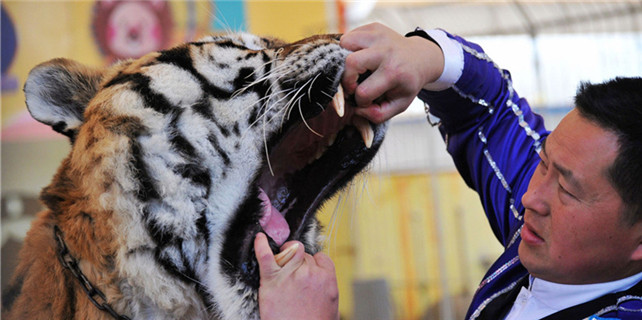Sex education needed in all schools, experts say
Experts have called for sex education to be promoted in all schools nationwide, warning that younger generations face serious physical and psychological threats from simple lack of knowledge.
A taboo subject in China for centuries, sex has been in the spotlight in recent years because of school bullying and child sexual assaults.
Speaking on Monday in Beijing at the third National Conference on China Youth Aids Prevention and Education, Zhang Yinjun, director of the AIDS Prevention Education Project for Chinese Youth, said half of China's 13 million annual abortion cases involve women under 25 years old.
It's estimated that the country has about 50 million people with fertility problems, and repeated abortions are one of the reasons, she said.
According to the National Health and Family Planning Commission, HIV/AIDS has expanded among young people in the past five years, with 35 percent annual growth in new cases in the 18-to-25 age group.
Sex education in China is mainly carried out by NGOs and private schools in pilot projects-the AIDS Prevention Education Project for Chinese Youth, Marie Stopes China and Nurturing Relationships, for example.
"Instead of being just an optional course in pilot schools, sex education should be compulsory for all 300 million students in the country," Zhang said, adding that, apart from public awareness about the importance of sex education, promoting it requires support from education departments to train professionals.
Only two universities-Chengdu University in Sichuan province and Capital Normal University in Beijing-offer sex education as a minor course. Some city governments encourage sex education in schools by purchasing services from NGOs or private enterprises.
In Wenzhou, Zhejiang province, 95 percent of 4,638 HIV/AIDS carriers identified last year were infected through sexual intercourse, according to the Wenzhou Disease Control and Prevention Center.
In cooperation with the AIDS Prevention Education Project for Chinese Youth, the city's Disease Control and Prevention Center has launched sex education training centers in every county, and students are required to take a course at least once a semester. It also introduced the country's first online app to test HIV/AIDS knowledge and collect feedback.
China is taking steps to break its silence on sex. Last year, the Ministry of Education issued a guideline suggesting that higher education institutions should create courses to teach students about sex and reproductive health.
"It has been proved that sex education should start in primary and middle school," said Amakobe Sande, country director and representative for UNAIDS. She said that in many countries, sex education is compulsory and student knowledge is tested.
"Sex education should be comprehensive, evidence-based and designed for children in different age groups," Sande said.
"Young people won't accept it if they feel they are judged or condemned. Making the courses user-friendly and stigma-free is very important. We should listen to the voices of young people and let them be core leaders of the course."









